
Bhanwar Niwas – A Heritage Haveli Stay in Bikaner
“Jaipur, Bikaner, Jaisalmer, and Jodhpur”, I told my friends who were interested in my travel plans to Rajasthan. God, did I just get the same reaction from all or not! “Bikaner? Why skip Udaipur and Pushkar for Bikaner”; curious, they indeed were. I close my eyes, one last time, to replay the pictures of that lateritious cluster of Havelis on my mind. A quick reminder to self on the question, why Bikaner?
The tuk-tuk ride back from Junagarh fort seemed longer than what g-maps showed. It was our second day at Bikaner and I hadn’t taken a proper picture of the Instagram famous “titanic-haveli” yet. Two more minutes, I reassured myself. I jumped out as the alley leading to Bikaner’s famous cluster of Havelis loomed in. Yes, Rampuria Havelis were the prime reason why I had chosen Bikaner over the other popular destinations in Rajasthan.
Were these alleys once brimming with life?
History of the Rampuria Havelis
Life went back to the 90s for a few seconds. I could see camels pulling fully loaded carts. Could picture men, dealers, loudly discussing their business. Was able to visualize ladies and kids peeping out from those intricately carved Jaalis and Jharokhas. I wondered how life would have filled these streets back then!
Built back in the 15th century by Balujee Chavla, the Rampuria Havelis are titled as the ‘Pride and heart of Bikaner’. Well, it is not without a reason. The building still radiates opulence. This cluster of Haveli belongs to a wealthy, primarily merchants, Rampuria family in Bikaner. Built using Bikaner’s famous red sandstone, these buildings showcase a beautiful mix of different architectural styles. A fusion of Victorian and not to forget the Rajputana grandeur.
Unfortunately, one can only admire the building’s frontage. Over the years, the Rampurias settled at other parts of the country for business reasons, leaving the mansions at the hands of caretakers. Having read about the fine interiors that were maintained behind this façade, I was more convinced to go visit.
‘But wait, you said the Havelis took no visitors, didn’t you?’ Did that question just run through your mind? 😊. Well, Bhanwar Niwas is your answer.
Experience the grandeur of Havelis at Bhanwar Niwas, Bikaner
Being a folklorist, stories of youngsters tracing their roots of origin always piqued my interest. Tale of Sunil Rampuria is no different. A Calcutta born young man, one of the heirs to a textile empire, returning to revive his ancestral property. As I was told, it is his, Sunil Rampuria’s, ‘love for art’ that we get to see at Bhanwar Niwas – grandest of the Rampuria Havelis. The building which was constructed by Bhanwarlalji Rampuria in 1927 is now remodelled as a fine heritage hotel.
What does Bhanwar Niwas have to offer?
As part of Sunil Ji’s efforts, Basavan group of hotels were born. This comprises of two art hotels, both rooted in Bikaner. Firstly, they have Gaj Kesari. Situated in the outskirts, this is also a popular choice of venue for celebrating weddings and other events. Second is Bhanwar Niwas. Both, Gaj Kesari as well as Bhanwar Niwas, homes a unique collection of artwork. Thus, making it a definite choice for all aesthetes.
Bhanwar Niwas offers its guests a buffet of rooms to choose from. Each offering an exceptional experience of its own. The project at Bhanwar Niwas initially started with just about 7 or 8 rooms. Currently, there are around 25 rooms available here, of which 11 are deluxe. Every room has its unique interiors custom-designed by the owner, with the help of local artisans.
Apart from guestrooms, the hotel also has two beautifully arranged public rooms – the Little as well as Blue drawing-room.
Our stay at the best of Rampuria Mansions
Prashanth, Sunilji’s son, was kind to offer us the stay at Bhanwar Niwas.
This was a 10-day blogging trip to Rajasthan with Bikaner being the 2nd stop after Jaipur. While my eyes were battling sleep, my body struggled against the stinging cold air outside. It was nearly midnight as we pulled in at Bhanwar Niwas. We were immediately directed to our room.
The doors opened up into a spacious room. Dim yellow lights from both the bedside lamps reflected off the golden artwork around. Usta art, I was told the next day. The king-sized bed was neatly made and an extra bed was arranged near the window for me. Red and golden upholstered chairs were placed to match the room’s decor. A quick shower, a hearty dinner, and off to bed I went.
The patter of rain against the window next to my bed woke me up. I could hear the slight chirping of birds as well. Peeping outside made me realise what I had missed noticing the previous night. 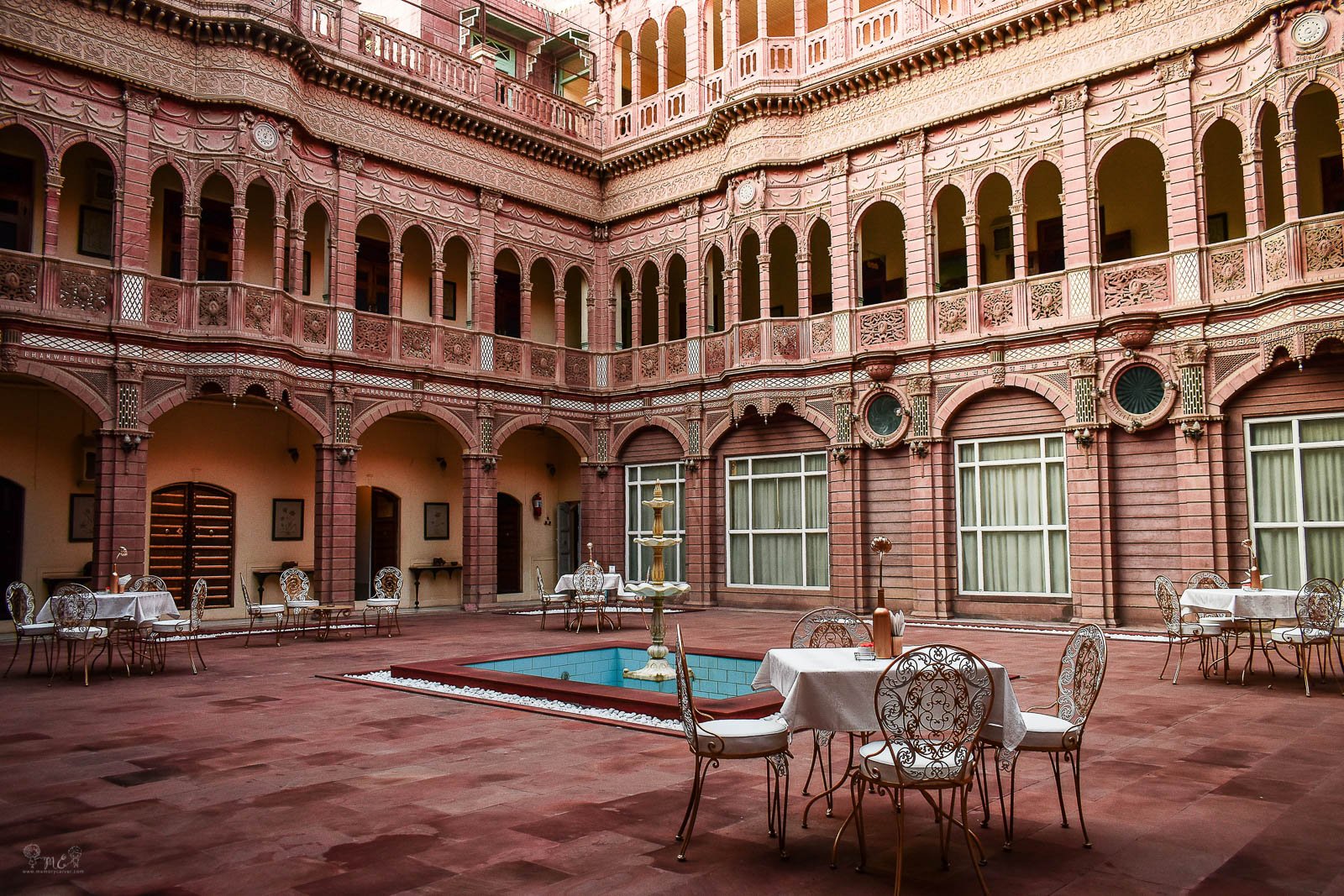 Soaked in the morning sunlight, the light-peach walls of the Center courtyard looked grand.
Soaked in the morning sunlight, the light-peach walls of the Center courtyard looked grand.
Exploring Bhanwar Niwas
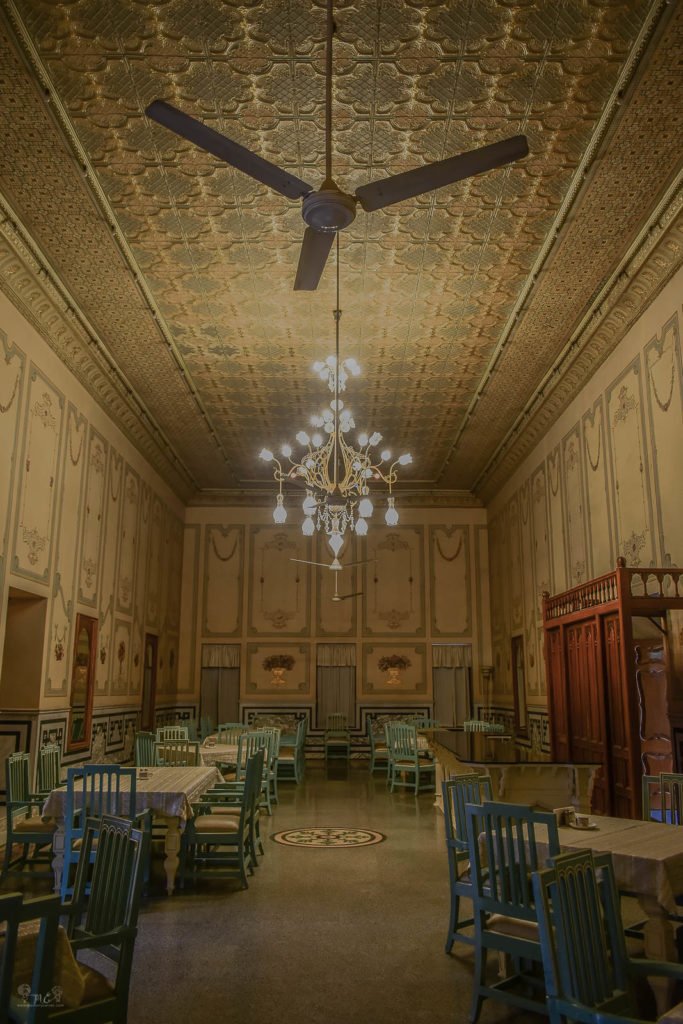
The palatial dining Hall at Bhanwar Niwas. The artwork took months to be completed. Or so I was told.
The food at Bhanwar Niwas is purely vegetarian. They don’t have a 24*7 restaurant. So, make sure you let them know beforehand if you’ll be staying for meals or not.
The taste of homemade jam still lingers… With a stuffed breadbasket, I set out to explore the Haveli from inside.
Mosaic flooring complemented the red, blue-green, and goldish walls throughout. I was taken along the warren of passageways leading to guestrooms at other parts of the Haveli. What well-appointed rooms all were! each different from the other. Some even had washrooms that looked royal!!!
One main feature that sets the Basavan hotels apart is the sophisticated golden curves that adorn its walls. That’s Usta Art. One can’t leave Bikaner without appreciating the beauty and effort put in by the Usta artists.
Next stop – meeting the artists at Bhanwar Niwas.
Usta Art at Bhanwar Niwas
Usta, derived from the word Ustad (master), came to Bikaner during the Mughal era. 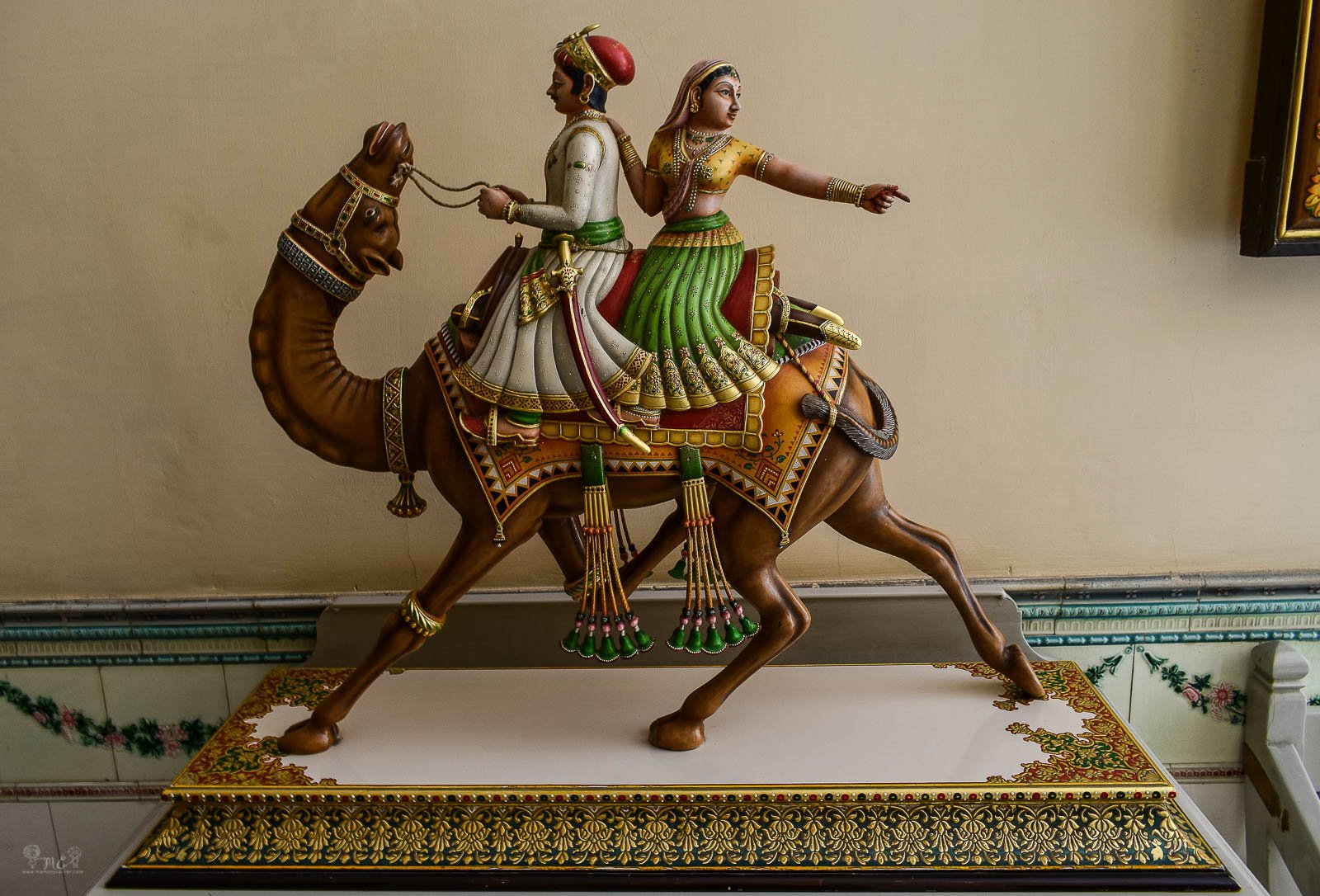 Exquisite Usta art on a figurine of Dhola-Maru.
Exquisite Usta art on a figurine of Dhola-Maru.
It is not just at Junagarh Fort where you can applaud the workmanship of Usta artists. Ayoob Usta helps in keeping the art alive at Bhanwar Niwas as well. I had the privilege of meeting two talented and dedicated artists at Bhanwar Niwas – Ayoob and Iqbal Usta. Ayoobji, a very amiable man, happily showed me around his workplace. He also explained how gold-embossing work is done on walls. At Bhanwar Niwas Usta art is done not just on walls, but also on other decorative items. So, if you are planning to stay at Bhanwar Niwas, do go meet its artisans as well.
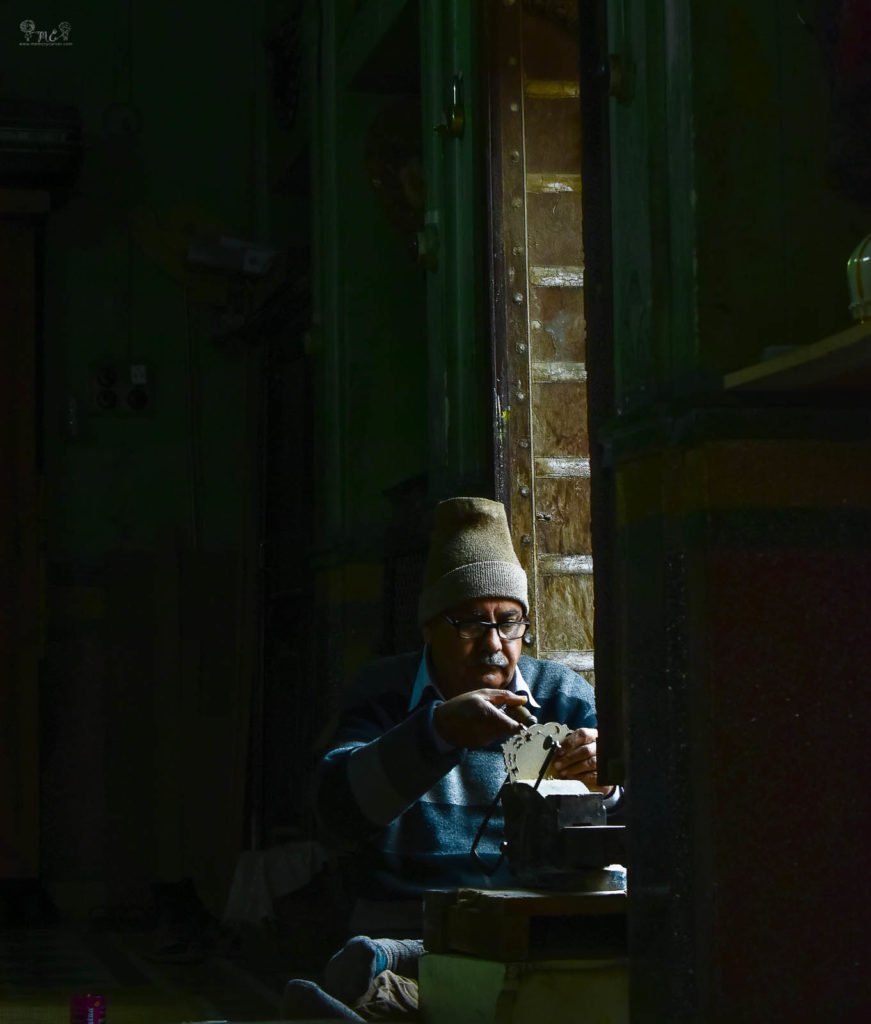
Iqbal Ji – His hands flawlessly carve-out various designs on wood. These are used at Gaj Kesari as well as Bhanwar Niwas as decors.
Now that you’ve fixed your stay at Bhanwar Niwas, what next?
Here’s a list of 5 things you can try out in Bikaner while enjoying your Haveli stay at Bhanwar Niwas.
- Visit Junagarh Fort to learn the history of Royal lives of Bikaner
- Admire The royal splendour at Lalgarh and Gajner Palace
- Drive over to the National camel research centre. Learn more about the different breeds of camels and how they are tended to.
- Savour the old city’s true essence on a signature heritage walk with Bikaner Heritage Walks.
- Enjoy a bit of folklore about Goddess Karni Mata at the famous Karni Mata temple
- You can also plan your holidays well in advance so that you’ll arrive in time for the Camel festival at Bikaner.
So, when are you planning your trip to Bikaner? When you do, you know where to stay! 🙂
How to contact Bhanwar Niwas?
You can reach Prashant via their email: bhanwarniwas@basavanhotels.com / bhanwarniwas@rediffmail.com or give them a call on +911512201043/ +911512529323/ +919413388723

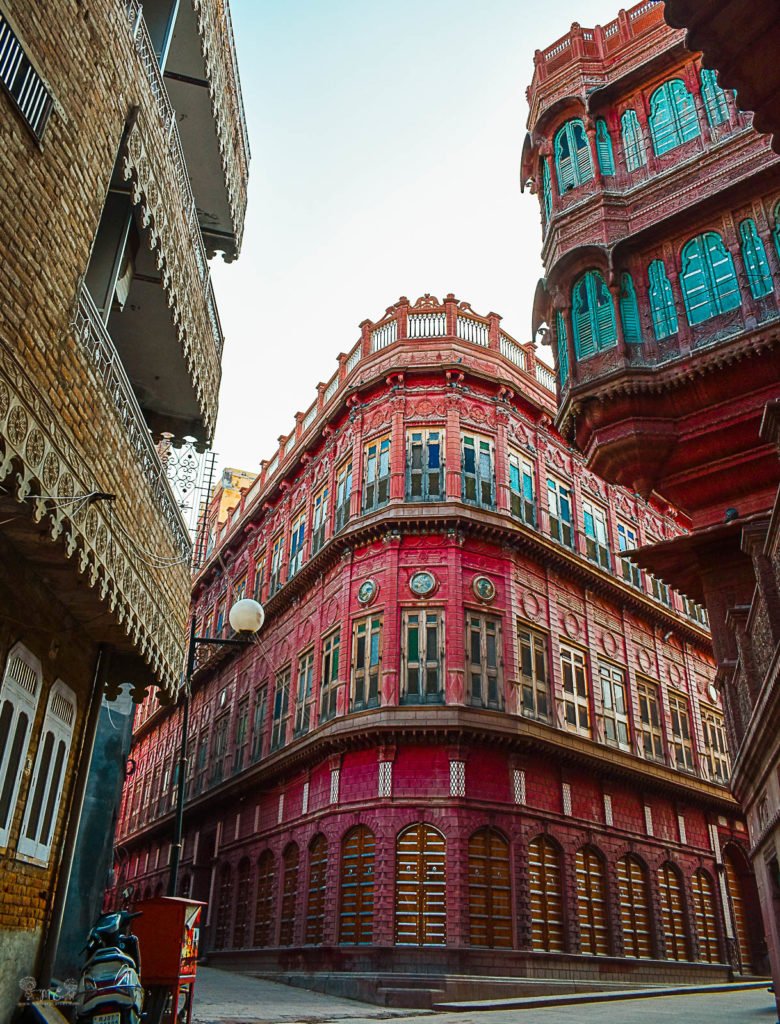
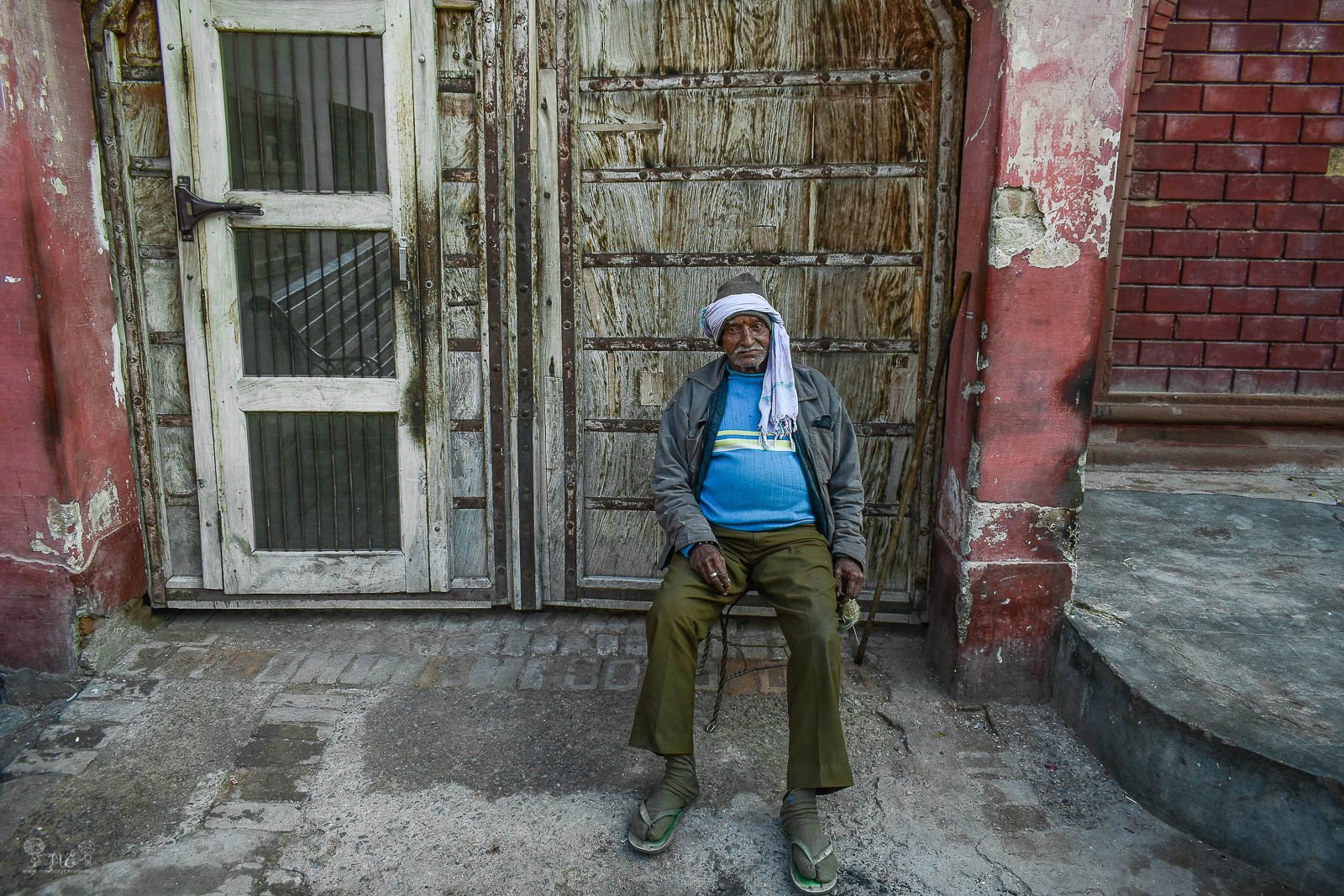


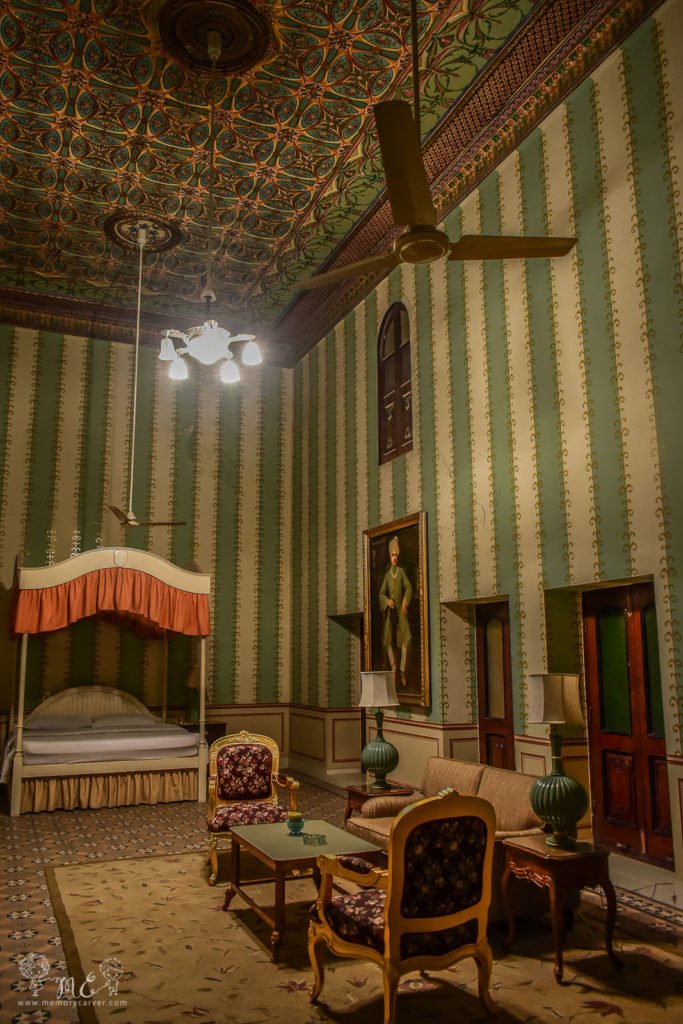



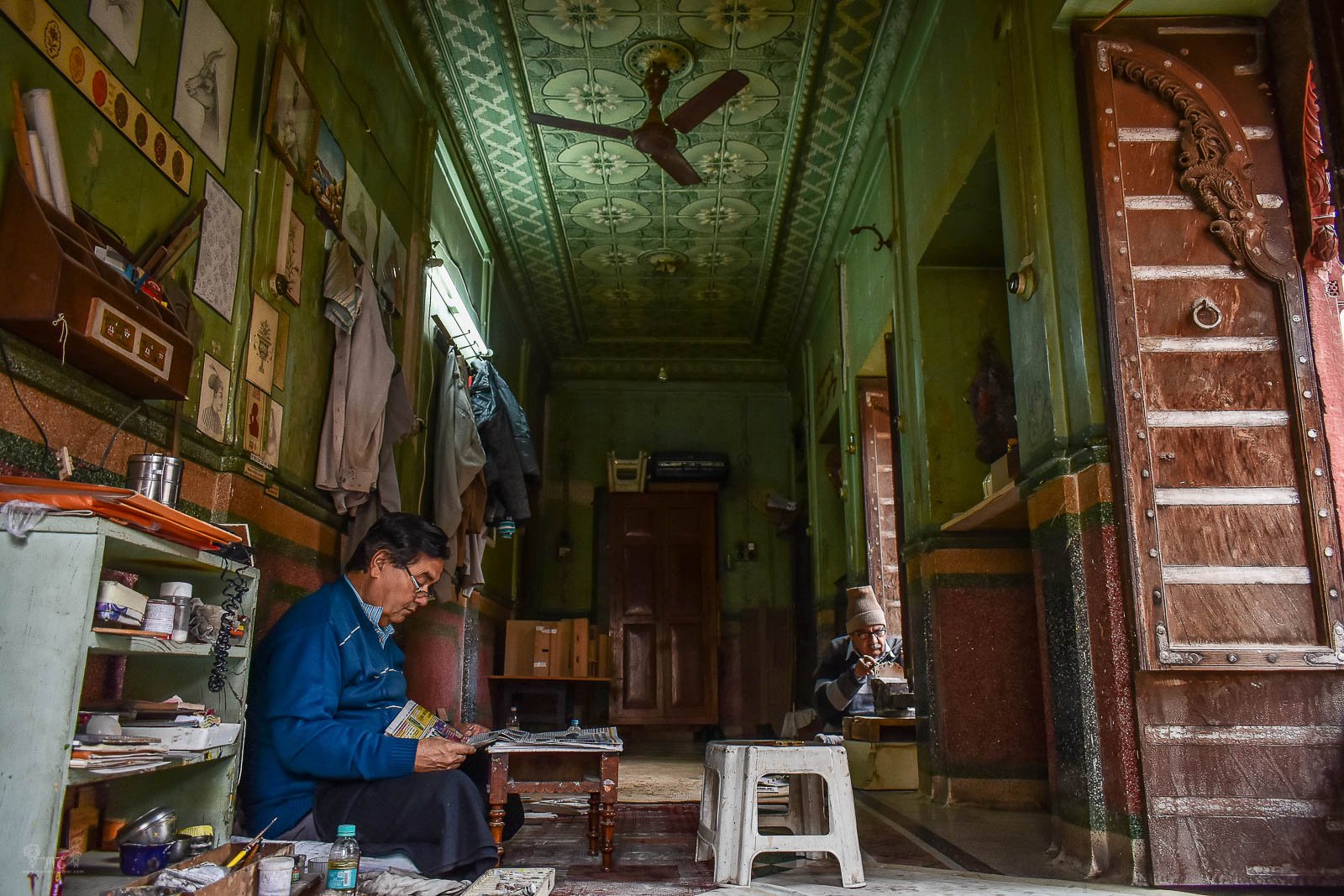
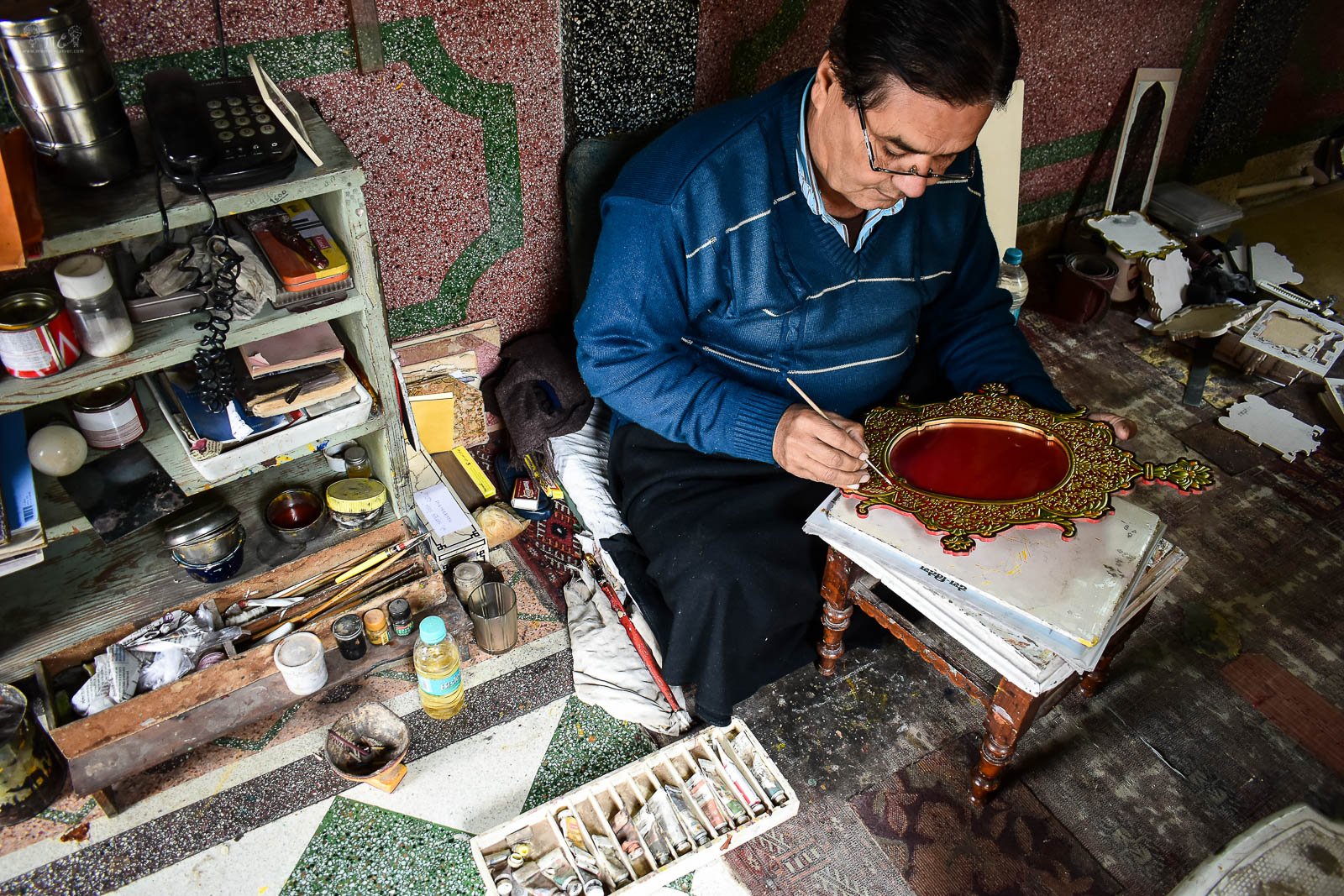

Thanks for the in depth write up of this Bikaner’s history and artistic culture. Nice photographs.
Thank you so much, uncle 🙂
Fantastic coverage .
Unique imformation and history
Thanks a lot, uncle! Glad that you found it informative. Do go visit the Haveli when you’re in Bikaner.
It’s only fair that all and any travel in the country is best done behind you ! Such an indepth kaleidoscope you present of all that you see n experience..the pixs that come to compliment..the last bit details that leaves no stone unturned for any discerning traveller.. It’s all a full blown treat ! Salutte Meera !
Thank you so much, Uncle. The stay at Bhanwar Niwas was really grand. Indeed a treat to the eyes. Do plan a trip to Bikaner once 🙂
That’s beautifully written. I’m definitely going to Bikaner either this or next year. Also loved the capture of pigeon from one of balcony at bhanwar nivas!
Thank you so much!! you should definitely plan a visit to Bikaner one day…